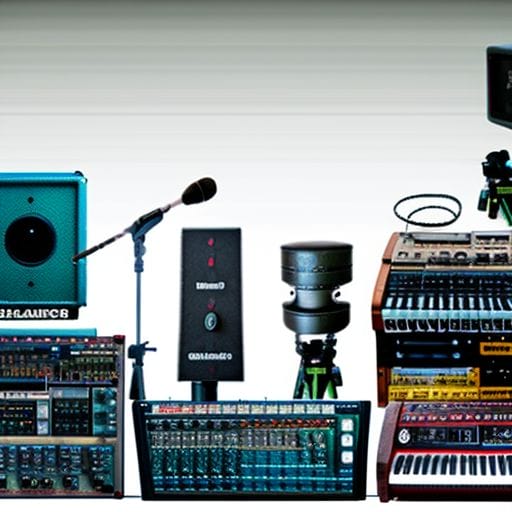Mastering Your Own Music: Affordable Tools and Techniques

How can mastering your own music help in developing your overall production skills?
There are endless possibilities when it comes to music production in the modern world. In contrast to past eras where production was monopolized by studios with complex hardware, today’s world of digital technology opens up a world of opportunity for budding artists. You can now practice and enhance your craft with top-notch production-empowering technology from the comfort of your home studio.
Mastering your own music doesn’t have to be a overly expensive or complicated endeavor. Whether you’re launching your music career or simply pursuing a pet project, this article will guide you through the top cost-effective tools and techniques for mastering tracks yourself, equipped with just your passion for music and your computer. From free software to budget-friendly hardware essentials, there’s a solution for every aspiring audio engineer.
Affordable Music Production Software
For producing and mastering music, Digital Audio Workstations (DAWs) are indispensable. While many quality DAWs come with a steep price label, others are surprisingly affordable and sometimes even free.
- GarageBand: There’s no cheaper option than free, and GarageBand provides a comprehensive DAW platform for Mac users. It’s feature-rich and boasts a user-friendly interface, making it suitable for beginners and professionals alike.
- Tracktion T7: This DAW is free for all users and compatible across various platforms, including Windows, Mac, and Linux. It’s simple to use, but also offers advanced features like automation, unlimited tracks, and supports a wide range of plugins.
- Reaper: Though not free, Reaper’s licensing is quite affordable, offering a variety of powerful tools and customization possibilities that you would typically find in high-end, expensive DAWs.
Budget-Friendly Audio Hardware
While software is essential for mastering music, it is equally crucial to have quality hardware:
- Audio Interface: Devices like the Focusrite Scarlett 2i2 or PreSonus AudioBox are excellent entry-level audio interfaces. They offer decent quality at a reasonable cost.
- Studio Monitors: Consider investing in monitors such as the Presonus Eris E3.5-3.5″ or Pioneer DJ DM-40, these provide professional-level sound on a budget, making them a great start for a home studio.
- Headphones: A good pair of headphones like Audio-Technica ATH-M30x can provide clear, high-quality sound invaluable for fine-tuning your mixes.
Effective Mastering Techniques
- Compression: One of the fundamental techniques in mastering, compression involves reducing the dynamic range of a song, making it consistent and balanced across all sections.
- Equalization (EQ): A crucial mastering technique, EQ helps balance all the elements of a track. It filters and cuts back on any frequencies that might be overpowering and emphasizes those that add uniqueness to the sound.
- Limiter: Use a limiter to increase the overall volume of your track without causing distortion. It’s used to ensure that the track doesn’t exceed a specific loudness threshold.
In conclusion, music mastering might seem daunting, but with the right tools and techniques, you can produce high-quality sound within your budget. With practice and patience, you will be able to master your own music effectively. Remember, the key to successful mastering is to trust your ears and your creative intuition. Happy producing!
